Online Courses
"Your Educational Journey Starts Here"Acute and Critical Care

View Course
Acute and Critical Care Comprehensive Curriculum
This critical care course is designed for RNs and APRNs who are in the trenches caring for and managing the increasingly complex patient population seen in acute and critical care units. The comprehensive curriculum is designed to equip you with not only the knowledge you need related to all body systems but is also presented in a way to help provide you with wisdom to apply that knowledge appropriately so you can impact outcomes. It is becoming increasingly difficult to stay current with the vast amount of evidence-based knowledge and clinical skills needed to provide exceptional care. This is a comprehensive clinical resources that provides you with relevant clinical information and practical application tips.
Please Note: This course is part of the CCRN and PCCN Certification Preparation Programs.

View Course
Acute and Critical Care Core Curriculum
The Acute and Critical Care Core Curriculum contains much of the same exceptional information presented in the Acute and Critical Care Comprehensive Curriculum. However, the Core Curriculum only covers seven of the twelve content areas included in the Comprehensive Curriculum. This course includes only the major body systems: cardiac, pulmonary, renal, GI, endocrine, neuro, and sepsis and shock states. For those who are searching for a shorter option this may be the one for you.
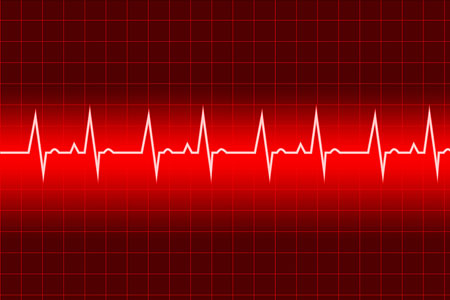
View Course
Cardiac Arrhythmia Interpretation: Essential Skills for Clinical Practice (For Nurses)
This course provides the basic knowledge and skills needed to interpret cardiac arrhythmias in any setting and is appropriate for nurses, monitor technicians, EMS personnel, and medical students. Content includes: principles of cardiac anatomy and physiology related to the origin and electrical activation of the heart during normal and abnormal cardiac rhythms, an organized 5-step approach to rhythm interpretation, descriptions of each cardiac rhythm with examples and practice strips to reinforce learning, practice sessions and homework related to each topic area. Pharmacologic and electrical therapy is included for rhythms requiring treatment. The emphasis in this course is on rhythm strip interpretation and appropriate treatment for life-threatening arrhythmias.
“Carol’s rate and rhythm of speaking were so smooth and easy to understand. The diagrams used in time with the verbal explanations helped me get a better picture of what Carol was describing. I learned so much from this course, will recommend it to peers.” — D.F.
“Very well structured and quite easy to follow. The homework and ECG strips are essential to revise and assess one’s learning throughout the course. Highly recommended.” — C.X.
“I love this course! giving me so much info with well-organized topics and detailed explanations and also strips to be analyzed. The instructor, Carol, is amazing!“
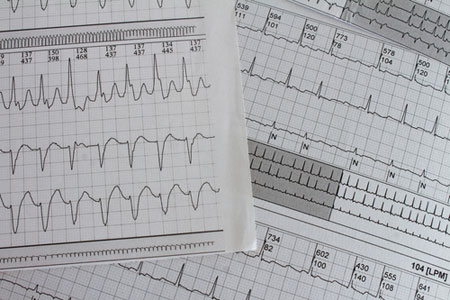
View Course
Cardiac Arrhythmia Management: Beyond the Basics
This course will sharpen your rhythm interpretation skills and give you certainty in response to a change in your patient’s cardiac rhythm. This is a comprehensive rhythm management course taking you beyond the basics in arrhythmia recognition and management. The course will take a deeper dive into recognizing bradycardias and heart blocks, atrial fibrillation, narrow and wide complex SVTs, and prolonged QT disorders that will strengthen your current knowledge. The course is appropriate for advanced practice nurses, nurses, and monitor technicians who want to expand their current knowledge of cardiac arrhythmias in adult patients beyond the basics.
Prerequisite Knowledge: Basic understanding of cardiac conduction and basic arrhythmia interpretation (P waves, QRS complexes, normal intervals).
Please Note: This course is part of the Institute of Excellence in Cardiovascular Essentials Learning Plan and the Advanced Practice Package.
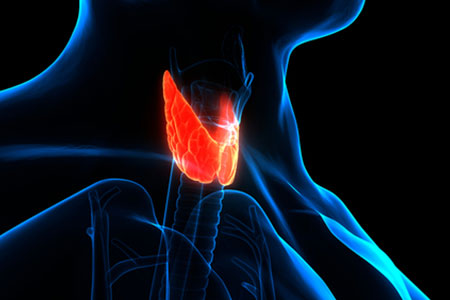
View Course
Endocrinology Review
Many patients in our community and in our hospitals have chronic endocrine diseases such as diabetes mellitus or hypothyroidism but also present with acute endocrine issues. This Endocrine Review is designed to walk you through key points to consider when caring for patients with endocrine disorders. Topics range from monitoring chronic stable disorders and helping to ensure you are confident in your care of patients with diabetes and thyroid disorders while also reviewing acute endocrine events (DKA, HHNS) and not so common endocrine disorders (diabetes insipidus and adrenal insufficiency).
Please Note: This course is part of the Acute and Critical Care Core and Comprehensive Courses.
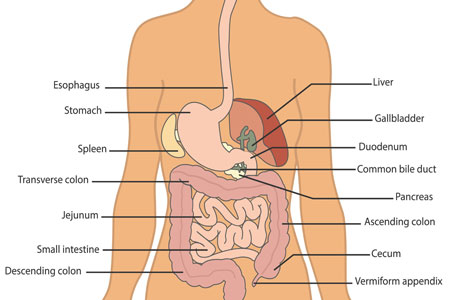
View Course
Gastrointestinal Review
The gastrointestinal system often does not get the attention it deserves in the acute care setting. Digestion, nutrition, and immune health all rely on a healthy gut. Multiple things can go wrong secondary to critical illness. This Gastrointestinal Review will discuss some of the most common disorders seen in the acute care environment and some not so common. Some of the topics covered in this course include: the acute abdomen, intestinal perforation, intestinal ischemia, bowel obstruction, hepatitis, chronic and acute liver failure and pancreatitis. The course will also discuss nutritional strategies in the acute ill patient and intrabdominal pressure monitoring.
Please Note: This course is part of the Acute and Critical Care Core and Comprehensive Courses.

View Course
Neuro Review
This Neuro Review is designed to clear up the confusion and provide clarity and understanding regarding neurologic disorders seen in acute and critical care. This course will cover stroke, brain tumors, encephalopathy, encephalitis, seizure disorders, neuromuscular disorders, closed head injuries, intracranial hemorrhage, skull fractures, spinal cord injuries and brain death. During the presentation the principles of intracranial monitoring will also be covered.
Please Note: This course is part of the Acute and Critical Care Core and Comprehensive Courses.
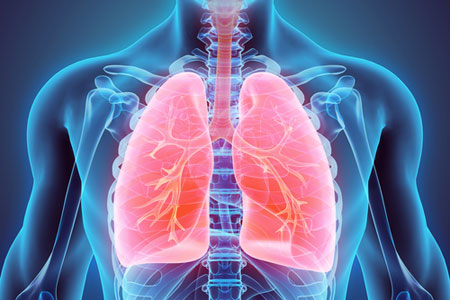
View Course
Pulmonary Review for ICU
This course is designd to strengthen your acute care skills related to the pulmonary system in the ICU. This Pulmonary Review for ICU will explore the concepts of ventilation, perfusion, and diffusion in a way that will allow you to evaluate these problems in your patients and confidently differentiate and treat ventilation and diffusion problems. You will master V/Q ratios, ABG interpretation skills, the oxyhemoglobin curve, and modes of ventilation. The content includes acute respiratory failure, COPD, status asthmaticus, sleep apnea, pneumonia, pulmonary edema, pulmonary embolism, pulmonary HTN, abnormal forms of hemoglobin, and pleural space disorders. A discussion of ARDS, specific strategies for ventilating with lung protective strategies, sedation and neuromuscular blockade, and ICU specific therapies including ECMO round out the course content.
Please Note: This course is part of the Acute and Critical Care Core and Comprehensive Courses.
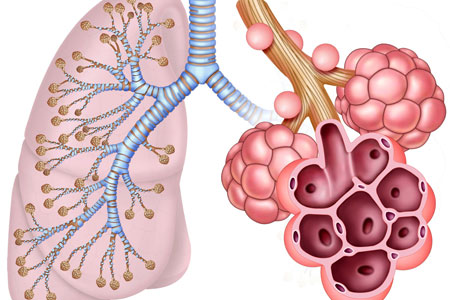
View Course
Pulmonary Review for Progressive Care
The Pulmonary Review for Progressive Care Couse is designed to bring clarity on how to best assess your patients with respiratory distress or with chronic pulmonary disease. The concepts of ventilation, perfusion, and diffusion will be presented in a way that will allow you to confidently differentiate a ventilation problem from a diffusion problem. You will practice ABG interpretation and learn how to get the most out of SpO2 and end tidal CO2 monitoring. You will also learn the treatment strategies for supporting oxygen and ventilation including noninvasive and mechanical ventilation modes. This course will cover acute respiratory failure, COPD, status asthmaticus, sleep apnea, pneumonia, pulmonary edema, pulmonary embolism, pulmonary HTN, abnormal forms of hemoglobin, and pleural space disorders.
Please Note: This course is part of the Acute and Critical Care Core and Comprehensive Courses.
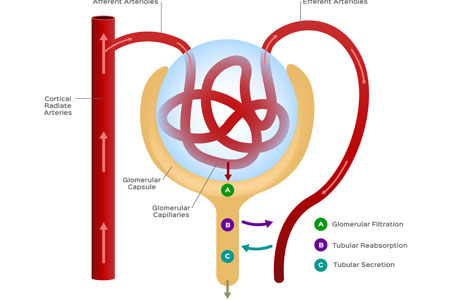
View Course
Renal Review
During this Renal Review short course the intricacies of renal disease will be discussed. Difficult concepts related to acute and chronic kidney disease will be discussed and presented in a way that makes sense and clarifies what you see at the bedside. The difference between CKD and AKI will be discussed along with strategies that can help decrease the development of AKI. The presentation helps clarify what BUN, creatinine and GFR tell us about renal function. You will learn to differentiate prerenal, from intrarenal from post renal AKI and understand how treatment strategies vary. As an extra bonus for those of you who work in the ICU the end of the program will provide a discussion on renal replacement therapy.
Please Note: This course is part of the Acute and Critical Care Core and Comprehensive Courses.
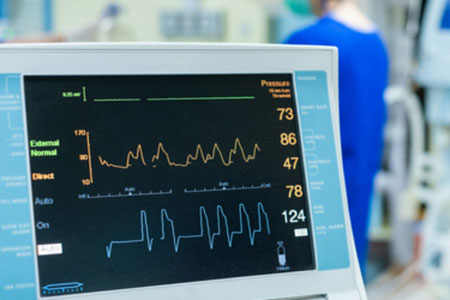
View Course
Shock States and Hemodynamics
This course is designed to equip you with the knowledge and skill needed to finally understand hemodynamic changes in your patient with the use of clinical assessment and if present, hemodynamic monitoring data. Early recognition of the subtle hemodynamic changes in early shock can greatly impact patient outcomes. This comprehensive course will take you through a step-by-step process in the understanding of hemodynamic data both with and without invasive monitoring. During the course you will learn to systematically evaluate the components of cardiac output with physical assessment data and with data received from an invasive catheter. Obtaining data will be linked to a critical analysis of that data to determine the patient’s hemodynamic status and differentiat hypovolemic shock, from cardiogenic shock and distributive shock states. This class provides a framework for the analysis of hemodynamic data using left ventricular function curves and hemodynamic subsets to determine patient status, understand appropriate therapy, and monitor the patient’s response to therapy. Case studies are used to enhance learning. This course will equip you with the knowledge you need to act quickly and with confidence with the recognition of hemodynamic changes identifyng shock states.
Please Note: This course is part of the Institute of Excellence for Cardiac Essentials Learning Plan.

View Course
Shock States and Sepsis
This short course on Shock States and Sepsis is designed as a review on the recognition and treatment of shock states with a sub focus on sepsis. Understanding that shock occurs when there is a lack of oxygen to the tissues this course will review the basic components of delivery of oxygen to the tissues and how their alterations are recognized at the bedside in the early stages of shock. This class provides a systematic frame work to help you understand the different shock states and how treatment strategies differ. In addition to a discussion on hypovolemic, cardiogenic and distributive shock states, obstructive shocks will be briefly reviewed. The course will conclude with an overview of the definition, recognition, and treatment of septic shock. The 2021 Sepsis Guideline updates have been included in the presentation. This is a great course for the nurse who wants an overview or review on shocks states. For a much more detailed course on shock states please consider the full course on Shock States and Hemodynamics.
Please Note: This course is part of the Acute and Critical Care Core and Comprehensive Courses.
Excellence Starts Here
Keep up-to-date with live classes, products, promotions, practice pearls and online courses.
Sign up today and receive a FREE GIFT, an exclusive offer available only to new subscribers.
Cardiovascular Nursing Education Associates
Exceptional Nurses, Exceptional Patient Care
